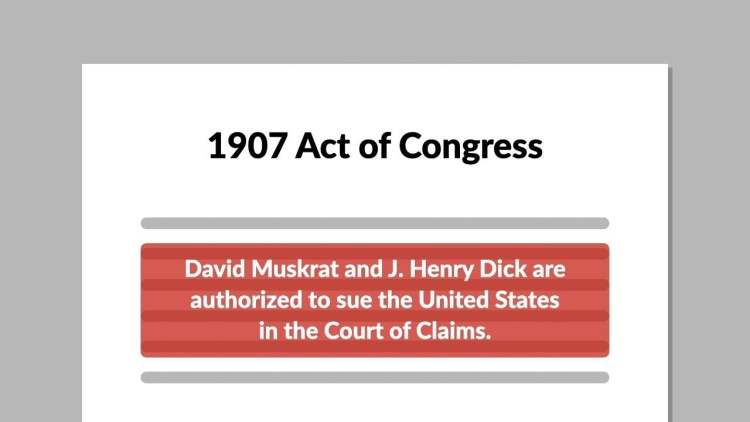Muskrat v. United States
United States Supreme Court
219 U.S. 346 (1911)
- Written by Michael Sokol, JD
Facts
Congress passed an act in 1902 allocating land to Native Americans. Subsequently, Congress passed additional acts restricting the rights of Native Americans who were previously allocated land. In 1907, Congress passed another act allowing Native Americans to bring suits against the United States in the Court of Claims, with a right of appeal to the United States Supreme Court, to determine the constitutionality of the acts passed after the 1902 act. The 1907 act provided that if the Court of Claims or U.S. Supreme Court found the acts invalid, counsel for both sides would be paid their fees and expenses from the United States Treasury. David Muskrat (plaintiff) and others brought petitions against the United States (defendant) under the 1907 act, contesting the constitutionality of the less favorable acts passed after 1902. The Court of Claims found that the acts were valid and dismissed the petitions, and Muskrat and the others appealed to the U.S. Supreme Court.
Rule of Law
Issue
Holding and Reasoning (Day, J.)
What to do next…
Here's why 905,000 law students have relied on our case briefs:
- Written by law professors and practitioners, not other law students. 47,100 briefs, keyed to 995 casebooks. Top-notch customer support.
- The right amount of information, includes the facts, issues, rule of law, holding and reasoning, and any concurrences and dissents.
- Access in your classes, works on your mobile and tablet. Massive library of related video lessons and high quality multiple-choice questions.
- Easy to use, uniform format for every case brief. Written in plain English, not in legalese. Our briefs summarize and simplify; they don’t just repeat the court’s language.







